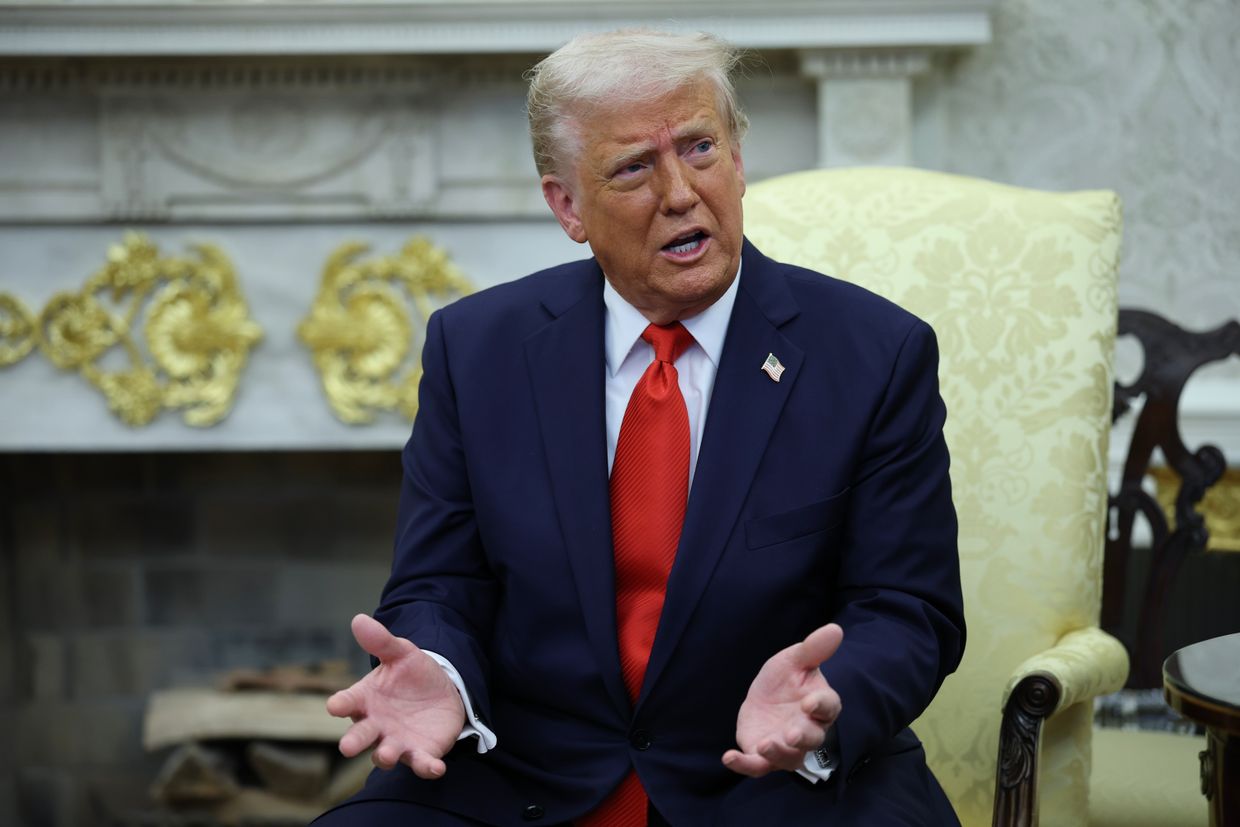Putin announces Easter ceasefire, Zelensky calls for 30-day truce

Editor's note: This is a developing story.
Russian President Vladimir Putin announced a temporary ceasefire on the Easter weekend, ordering a halt to all military action from 6 p.m. Moscow time on April 19 until midnight on April 21.
Putin announced the order during a meeting with the Russian Chief of the General Staff, Valery Gerasimov, on April 19.
Putin framed the decision as being guided by humanitarian concerns. "I order the suspension of all combat operations during this period," he declared.
"We assume that the Ukrainian side will follow our example," he added.
The suggested Easter ceasefire follows previous Russian attacks on Ukraine during major Orthodox holidays, including a deadly strike on Sumy on Palm Sunday that killed 35 people, and an attack on Kharkiv during Good Friday that killed one person and injured 120.
The effectiveness of the ceasefire will "test Ukraine's sincerity in pursuing peace talks," according to Putin, who said that the real measure of Kyiv's intentions will be revealed by its actions over the Easter period.
President Volodymyr Zelensky countered Putin's proposal by inviting Russia to extend the ceasefire beyond Easter Sunday.
"This will show Russia's true intentions, because 30 hours is enough for headlines, but not for real confidence-building measures. Thirty days can give peace a chance," Zelensky said via Telegram on the evening of April 19.
Zelensky said that reports from the Ukrainian military indicated Russia had not stopped all its assaults on the front lines and that Kyiv would respond "in a mirror manner" to Russia's actions, abiding by a true ceasefire or meeting fire with fire.
"There will be an adequate response to every Russian strike," he said.
Kyiv initially reacted to Putin's ceasefire announcement with skepticism.
"As for yet another attempt by Putin to play with people's lives — an air raid alert is sounding across Ukraine right now," Zelensky wrote on Telegram shortly after Russia's declaration.
"At 5:15 p.m., Russian attack drones were spotted in our skies. Ukrainian air defense and aviation are already responding. The presence of Shahed (drones) over our territory shows Putin's true attitude toward Easter and human life."
Foreign Minister Andrii Sybiha was similarly skeptical of Putin's claims, drawing attention to Moscow's continued rejection of a U.S.-proposed complete 30-day ceasefire, which Ukraine has supported since March 11.
"Now Putin has made statements about his alleged readiness for a ceasefire. 30 hours instead of 30 days," Sybiha said.
"Unfortunately, we have considerable experience when his statements did not coincide with his actions. We know that his words cannot be believed, and we will look at actions, not words."
Putin's announcement comes after Washington signaled that it was ready to cease its mediation efforts to end Russia's war against Ukraine if one of the sides "makes it difficult."
Russia refuses to accept a full ceasefire unless it includes concessions that would undermine Kyiv's ability to defend itself, including a full halt to foreign military aid.
On March 25, Moscow agreed to a partial truce, which included a maritime ceasefire in the Black Sea and a 30-day pause in strikes on energy infrastructure. Since then, Ukraine has reported more than 30 violations of the partial ceasefire by Russian forces. Meanwhile, Russian attacks on civilians in Ukrainian cities have intensified.
Putin accused Ukraine of violating the ceasefire on energy infrastructure over 100 times, without providing any evidence. Putin said he expects Kyiv to follow the Easter ceasefire but added that Russia should be ready to respond in case of violations.
Russia has repeatedly falsely accused Ukraine of various attacks and provocations since the beginning of its full-scale invasion in 2022, often presenting them as a pretext for escalation.














